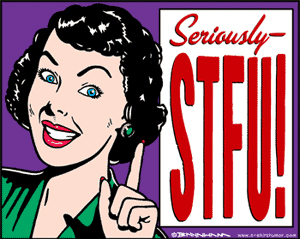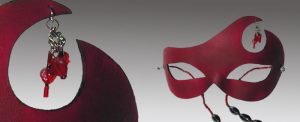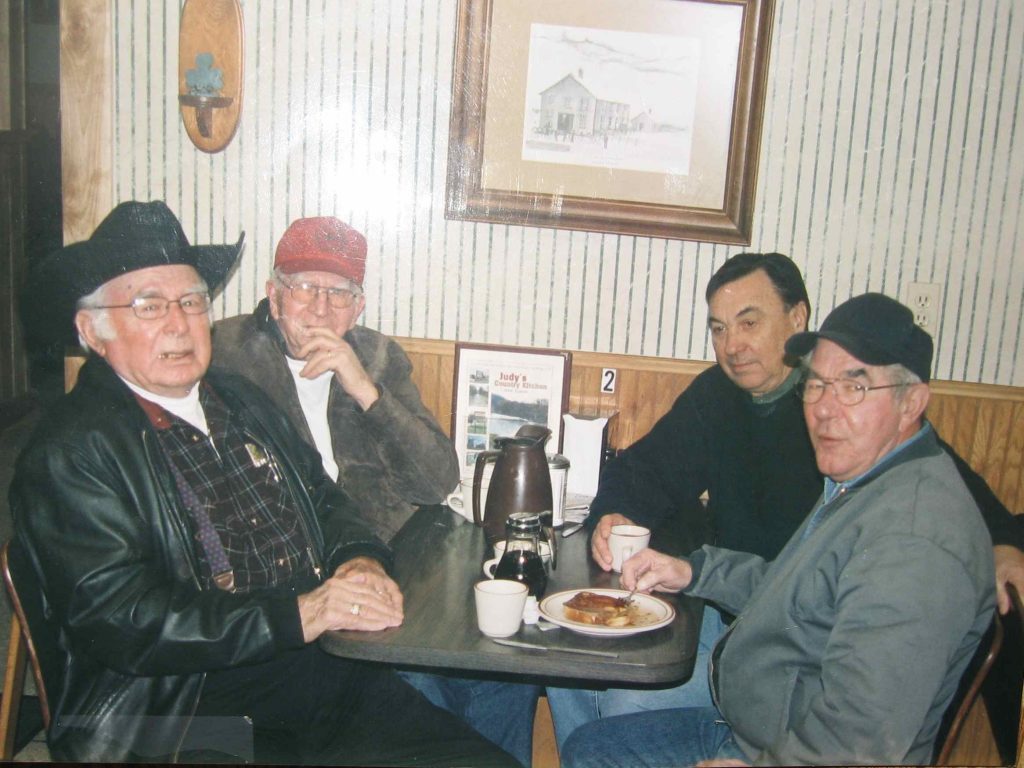 I had several ideas for this post’s title:
I had several ideas for this post’s title:
“I’m not one of you.”
“Repeating myself”
“Tired of the sound of my own voice”
“Being silent”
“Serial starter”
Anyway, all of them are pertinent to my point, but they all mean different things. I’ll take them one by one.
“I’m not one of you.”
In the cult of self-publishing, the loudest voices are the ones who write fast and put out an oeuvre faster than I can switch channels on the TV. They are the ones who say such things as:
“If you’re not writing, you’re not a writer.”
“If you want to make any money at this, you have to write X number of words per day.”
“Writing is a business.”
“You must outline to write a decent book.”
and my personal favorite,
“Writers are lazy,” which post I would link to, but it has since been pulled. (Here’s the rebuttal.)
It’s all bullshit. Rather, the fact that all writers must follow these instructions as gospel is bullshit. The fact is, writers write for a whole host of reasons, only one of which is to make their works commodities. I provide a commodity service. I’m not in the business of writing novels to make them commodities too.
Commodities are soulless, interchangeable widgets, and I don’t believe that books are commodities at all. I also don’t believe that writing fast makes a book soulless. I simply can’t write that fast and put the time and thought into them that I do.
So, to you incessant voices in self-publishing and those of you who were trained as midlist authors to keep putting product out there, I’m not one of you.
Which leads me to my second point:
“Repeating myself”
I am not on the vanguard of self-publishing. Dan Poynter is. Aaron Shepard is. Morris Rosenthal is. April Hamilton is. They are mostly nonfiction writers and they speak to writers of niche nonfiction. For instance, Dan started out publishing parachuting and skydiving treatises.
I am, however, on the vanguard of self-publishing fiction, along with Ann Somerville and others in niche genres. I took a lot of heat for it, too. The loudest voices in self-publishing now were once rabid anti-self-publishers and some of them attacked me personally both publicly and in email for it. Hey. Assholes. I blazed your trail. You’re welcome.
(Oh, is that arrogant? Yeah, I know. I’m a woman. I’m not supposed to be arrogant. Suck it.)
I’ve said all I want to say, I’m noticing repetitious themes in my writing that annoy me, and I’ve become
“tired of the sound of my own voice.”
You may have noticed that, other than posting Dunham chapters, I haven’t blogged a lot.
“Being silent”
I seek silence like water seeks the ocean. You wouldn’t know it to meet me at a cocktail party, conference, or convention, but I’m an introvert. (Please see “Caring for your introvert” and “Maker’s Schedule, Manager’s Schedule.”)
“Serial starter”
I like to start projects. I rarely finish them. The ones I finish, I really, really care about. And then I abandon them. Because I’m bored with that.
“Veni, vidi, vici.”
You know where I’m going with this by now. For decades, I have wanted to be a published author. Like, since I was 15, which is exactly three decades. It may have been earlier, when I was around 10 and wanted to submit something to one of the Reader’s Digest quip sidebars. I knew how to follow instructions. My submission wasn’t published. But by the time I was 15, I had found out a) how to submit to Harlequin, b) what to submit to Harlequin, c) how many words I had to write to submit to Harlequin (Presents line, in case you were wondering), and d) about how much a Harlequin advance was and how much in royalties I could expect and when (answer: zero, which was okay with me at the time).
Along the way I have had disappointments and obstacles and tangential projects and replacement projects, all while going to school, earning a living being, basically, an administrative handyman because I had an unbelievable skillset and a degree. You know, living life as a marginally normal person. There was always something odd about me. Everybody knew it but me, until I finally got a clue by working in a very dysfunctional place.
So along comes 2007 and, after 7 or 10 or however many years when I had given up writing totally, out pops this doorstopper. And so I published it. And so I had MOAR STORIES TO TELL!!! So I did that. And here we are, five years later and I’m about to publish book 4 in a planned 5-book series, and I realized this morning…I’m done. I did it. I did what I wanted to do, which was to get my stories out on paper and to the public.
I have no more stories. I will write book 5, but it’ll be a while, and I will likely go dark for that time, but I owe those fans who have been slowly accumulating and who love the world I built.
The difference this time, in seeing the light at the end of this obsession’s tunnel, is that for the first time in my life I have no overarching “This is what I want to do.” I’ve done it. I quit writing once and had nothing to fill that creative void so I made a cross-stitch design company and permanently killed my love for my favorite hobby. But always, getting a book published was my overarching life goal–because I thought it would take my entire life to do so. Writing was my life’s work and I never thought I’d run out of stories to tell.
But I have, and now it’s time to move on.
So…where do I go from here?
I dunno, but I’m gonna read a lot of books while I try to figure it out.


 I had several ideas for this post’s title:
I had several ideas for this post’s title:























 This is not an anti-traditional-publishing rant. This is about writers, about you and your work and how much faith you have in it.
This is not an anti-traditional-publishing rant. This is about writers, about you and your work and how much faith you have in it.





 Anyway, 3-almost-4-year-old XY Tax Deduction and I went to Hy-Vee for lunch to kill some time. I love Hy-Vee’s salad bar (best grilled chicken EVER!) and XY TD loves their pizza. And canteloupe. On the same plate.
Anyway, 3-almost-4-year-old XY Tax Deduction and I went to Hy-Vee for lunch to kill some time. I love Hy-Vee’s salad bar (best grilled chicken EVER!) and XY TD loves their pizza. And canteloupe. On the same plate.
